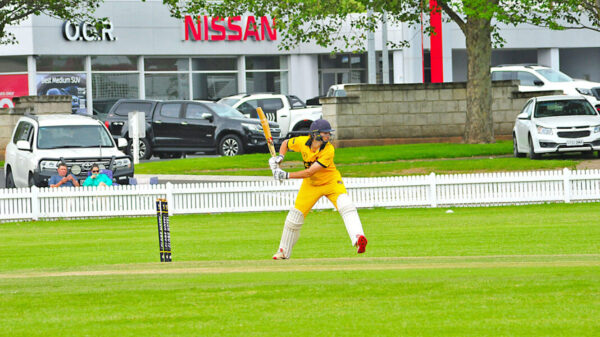UPDATE: The jury is set to deliberate on the fate of Kiama MP Gareth Ward, who faces serious sexual assault charges, with a decision expected as early as Tuesday. Ward, 44, has pleaded not guilty to charges of sexual intercourse without consent and indecent assault, stemming from incidents involving two young men in 2013 and 2015.
During closing arguments in the NSW District Court, Ward’s lawyer, David Campbell SC, urged the jury to consider the “inherently unreliable” nature of the testimonies presented. He criticized the first accuser, who claims he was assaulted at Ward’s South Coast home after being invited over while intoxicated. The alleged incident occurred in February 2013, with the complainant asserting he was assaulted three times despite his attempts to resist.
In a separate allegation, Ward is accused of sexually assaulting a political staffer, now aged 24, following a 2015 event at NSW Parliament House. The complainant testified that Ward climbed into bed with him and groped him, even after he repeatedly said “no.” However, the accuser struggled to confirm the exact date of the assault, stating he was “fairly certain” it happened in September, yet earlier indicated it could have been between June and August 2015.
Campbell emphasized inconsistencies in the timeline, questioning whether the alleged assault actually occurred at Ward’s apartment in Potts Point. He cited cell tower records indicating the complainant was near Parliament House during the relevant timeframe, arguing that this raises doubts about the claims.
Furthermore, a housemate of Ward testified that he was home during the alleged incident and did not see the complainant at any time. “This is powerful evidence about where the complainant wasn’t rather than where he was,” Campbell asserted. The barrister also accused police of selectively investigating the case, suggesting that the testimony was influenced by external pressures.
The trial has highlighted the challenges of memory over time, with Campbell arguing that uncertainty has colored the complainants’ accounts. He posited that the first complainant may have exaggerated details after confiding in a friend, who then reported the allegations to the police. “Could it be the case that he has been put into a position where he was caught and had to go on with it?” Campbell asked.
As the jury prepares to retire, the crown prosecutor must prove the case beyond a reasonable doubt for both complainants. The outcome of this high-profile trial could have significant implications for the political landscape in New South Wales.
For immediate support, individuals affected by sexual assault are encouraged to contact 1800 RESPECT at 1800 737 732 for national sexual abuse and redress support services.
Stay tuned for updates as this developing story unfolds.





























































